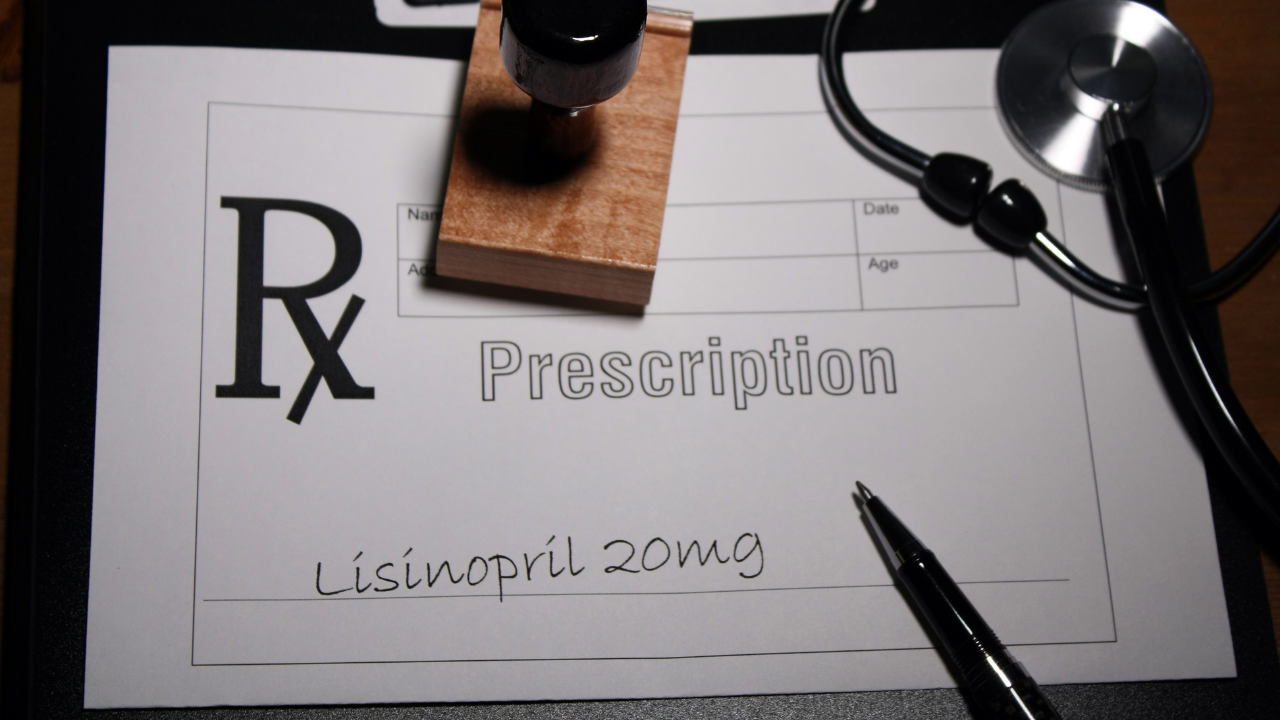Are you coughing?
Could Lisinopril be causing this cough?
This article will examine whether Lisinopril is associated with your cough.
A persistent dry cough has been associated with ACE-Inhibitors.
Lisinopril is an ACE-Inhibitor. ACE-I stands for angiotensin converting enzyme inhibitor. Medications who are in the same family of drugs have been associated with a cough as well. In studies the numbers range from 5-20%.
What are the characteristics of the ACE-inhibitor cough?

- IT is dry.
- It is hacking.
- And often persistent, and annoyingly bothersome
What causes the Lisinopril (ACE-Inhibitor) cough?

Like I mentioned before Lisinopril is an ACE-Inhibitor. It blocks an enzyme called a Angiotensin converting enzyme. In this way it prevents the conversion from AT1( Angiotensin 1) to AT2(Angiotensin 2).
Because of this ACE-inhibitors relax and widen your blood vessels. This lowers your blood pressure and makes it easier for your heart to pump blood around your body.
Unfortunately, as this is happening because AT2 is being blocked by Lisinopril another substance builds up in your body called bradykinin and a couple of other substances which I’m going to list here ( Substance P, thromboxane, prostaglandins). All of these substances can build up in your airways causing an inflammatory reaction as well as a constriction of your smaller airways (bronchoconstriction).This is what you are feeling right now. That annoying, persistent and bothersome tickly feeling at the back of your throat
What are other features of this cough?
Who are at risk?
It is more common amongst women than men.
It can happen within a couple of weeks after you start treatment with Lisinopril or other ACE-Inhibitors.
Sometimes this is delayed, and you may develop symptoms after a couple of months or with some individuals after years.
This study looked at a “ high prevalence of this cough in Chinese.This study showed an unusually high percentage ( 44%) with a cough.
If you are an asthmatic, you might be more affected especially if Lisinopril causes a narrowing of your smaller airways.
I have a cough. What can I do?
These are the six tips!
- You can be switched to another class of medication called an ARB.(Angiotensin receptor blockers). An example of an ARB is Losartan. This group of medications are comparable to ACE-inhibitors and have a lower rate of cough. If you are interested in a video comparing Lisinopril and Losartan check this card out.
- Your doctor can stop your medication and the symptoms should resolve within a couple of days. Usually within a week your symptoms should start improving. Other individuals it might take longer and with others the cough lingered on for up to 3 months.
- Sometimes your doctor might want to re-challenge you with another ACE-inhibitor. However, these have been associated with a high rate of recurrence of this cough.
- There is some data to suggest that drugs such as Baclofen Aspirin or even indomethacin may help suppress the cough. I am very hesitant about suggesting this. One thing you are treating a side effect of a medication with yet another medication. Secondly medications such as Indomethacin or other NSAIDs are associated with renal problems and can contribute to higher potassium levels.
- Depending on your constellation of comorbidities your health care provider might want to switch you to another class of blood pressure medications. They usually would fall into one of the following categories: beta blockers, thiazide diuretics or calcium channel blockers.
- Another possibility would be to use a lower dose of the ACE-inhibitor. This might be an alternative especially if your health care provider believes the medication believes that the medication is helping manage your co-morbidities such as hypertension or heart failure. Nonetheless, you still might experience side effects as these side effects are not dose dependent.
If you are interested in other videos click right here.
Sources:
- https://clinmedjournals.org/articles/jhm/journal-of-hypertension-and-management-jhm-2-015.pdf
- https://www.uptodate.com/contents/major-side-effects-of-angiotensin-converting-enzyme-inhibitors-and-angiotensin-ii-receptor-blockers?search=lisinopril%20cough&source=search_result&selectedTitle=1~150&usage_type=default&display_rank=1#H6
- https://www.ejinme.com/article/S0953-6205(16)30361-2/pdf
- https://pubmed.ncbi.nlm.nih.gov/16428706/
- https://www.ncbi.nlm.nih.gov/pmc/articles/PMC6340691/
- https://www.ncbi.nlm.nih.gov/pmc/articles/PMC1365173/







